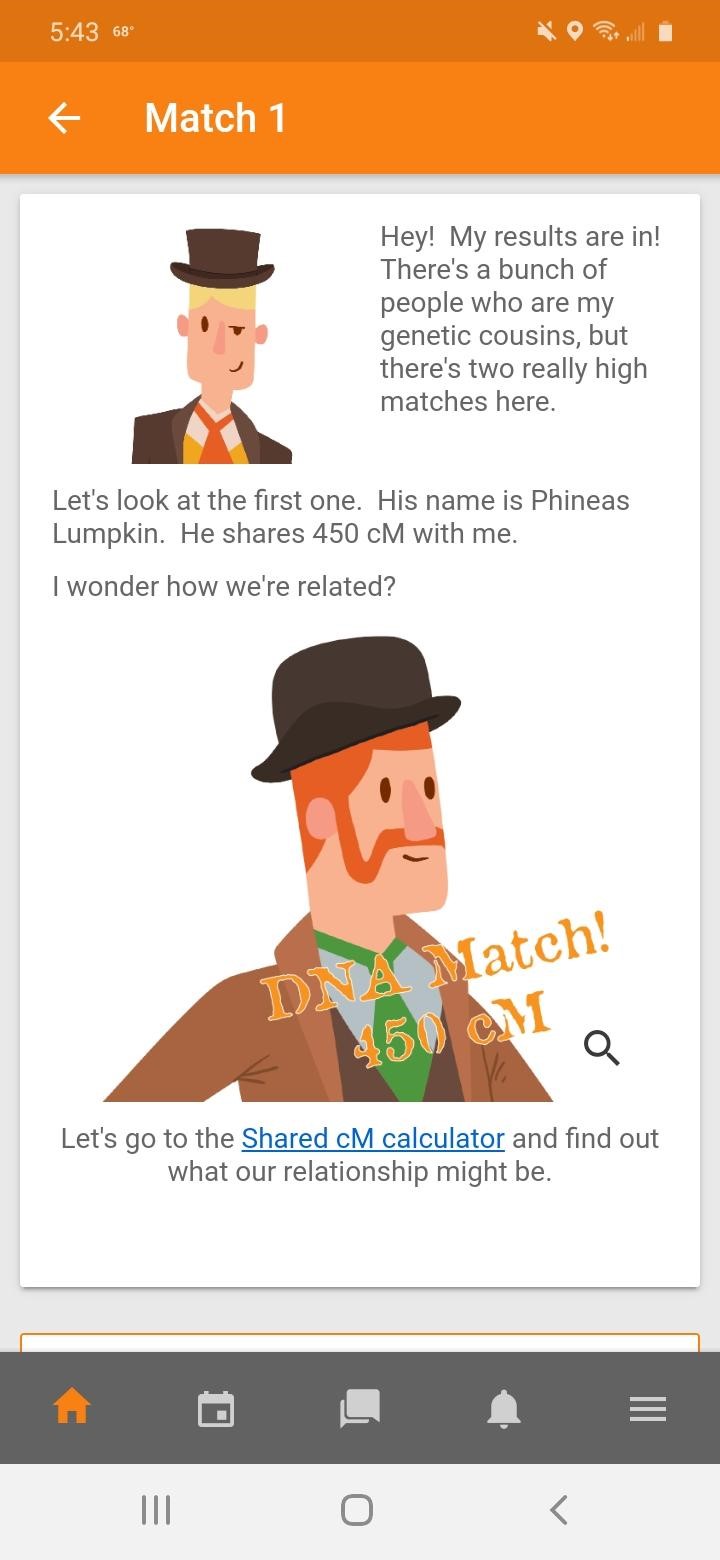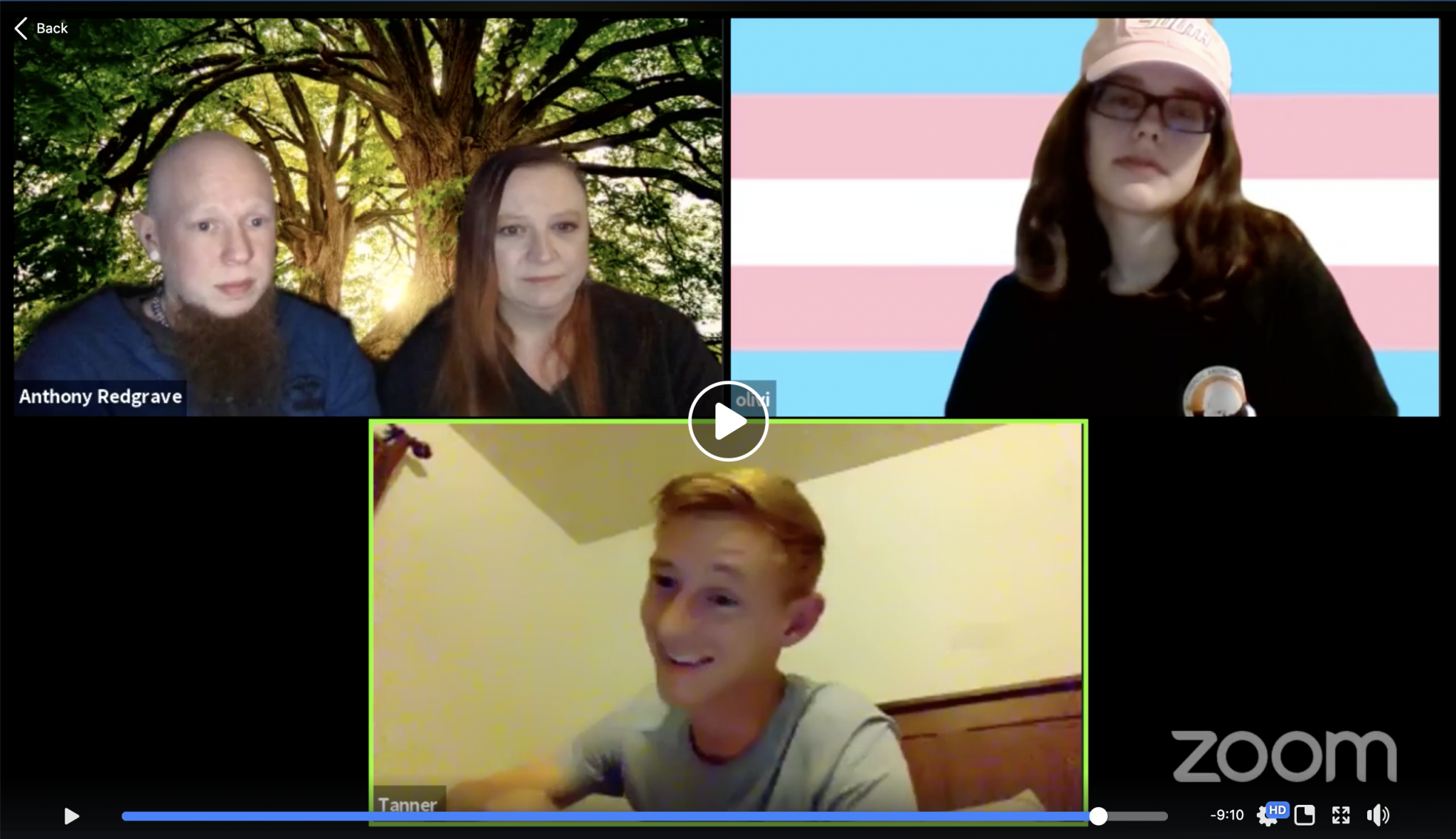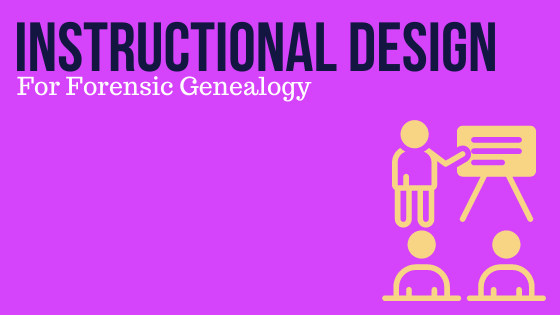Forensic Genealogy Training for Law Enforcement (FG4LE) is an online educational program developed by Anthony Redgrave, lead forensic genealogist of Redgrave Research Forensic Services LLC. Anthony has a M.S. in Instructional Design and Technology, and is currently enrolled at the University of New England working towards an Ed.D. in Transformative Leadership with a focus on development and implementation of forensic genealogy educational courses.
Note: In the course and this article, “Forensic Genealogy” is intended to be synonymous to other terms used in the field such as Investigative Genetic Genealogy and Forensic Genetic Genealogy.
The foundational FG4LE course was conceptualized while Anthony was the Training Coordinator for the DNA Doe Project, and was offered under their umbrella. It was originally available to law enforcement professionals to enable them to be able to work their department’s forensic genealogy cases with instruction from experienced genealogists. The beta class opened in early 2019. As of May 2020, the course is no longer affiliated with the DNA Doe Project, and has been expanded into an online school open to a wider variety of professionals and students.
Assessment and Development
The primary target audience in 2018 was law enforcement professionals, so a survey was created for potential students. It was not created to find out what the students already knew or didn’t know, but rather to gain insight into any trends in their learning styles and preferences. What was discovered was interesting: Most of the respondents said they did not like to play games, but when given a free response area to discuss what they do when they’re not working, many of them described activities that could be described as games, such as sports and puzzles. When asked their favorite part of their job, they all expressed caring about the lives of people that they help and being interested in their different stories.
Game-Based and Self-Paced
Game-based learning encourages neuroplasticity – the ability of the brain to quickly adapt to new knowledge and skills. Games also are intrinsically motivating. The reason for completing a game or solving a puzzle is that the player simply wants to complete it. Simulations themselves are a kind of game. Learning a skill in a similar environment to where it will be applied encourages better retention and faster recall. For the course, a simulation was created that allows the students to learn and make mistakes while having fun and using the same tools they would be using in real cases. Alternate Reality Games (or ARGs, for short) are games which use the real world as the platform upon which they are played – players call an actual phone number and get a recorded message, or send an email and get a response that gives them the next clue they need to reach the end goal. In this case, the goal is to discover the identity of a fictional John Doe.
Because the course was originally designed with law enforcement professionals and their busy lifestyles in mind, it is set up on a mobile-compatible platform. The foundational course is entirely self-paced and has rolling admission, making it possible to squeeze a lesson in or put it down and pick it back up later. Arrangements can also be made for partners or groups who wish to keep pace with each other or work collaboratively.

Topics covered in the lesson modules include:
- DNA Basics
- Simulated adoptee case
- Commonly used websites and services
- Tree building and management
- Preparing DNA evidence for genealogy
- Advanced DNA: segmentology
- Research and best practices
- John Doe case simulation

Who Was Glowstick Doe?
After learning the foundations of forensic genealogy, FG4LE students are assigned the task of identifying “Glowstick Doe,” so named for the still-illuminated glowsticks he was wearing when he was discovered within hours of his death. Students are given choices such as how to “upload” their DNA kit, or choosing to email DNA testers and witness a wide spectrum of responses based on real experiences of working forensic genealogists. When the case is “solved,” students submit a sample report showing how they came to their candidate for identification. Completion of the course issues a numbered certificate that agencies can validate.
Continued Learning
Students who have completed the foundational course have further options if they choose to continue. Law Enforcement professionals have the option to bring a case from their department and participate in a case launch which allows them individual hands-on guidance to set up their case for the best chance of success. They will have the ability to participate in the beginning stages of casework along with experienced forensic genealogists who can help them feel comfortable taking the case forward on their own or with their department.
Case Triage
The purpose of case triage is twofold: It gives departments an opportunity to have their forensic genealogy case continue to be worked on for as long as may be necessary, and gives student interns hands-on experience with cases which would otherwise be shelved. There are innumerable cold cases with DNA evidence. Of the small number of cases that are submitted for forensic genealogy, the odds of a case being an “easy” ID are not at all predictable until the DNA kit is uploaded and evaluated. Many forensic genealogy cases may end up stalling out or languishing due to difficulties related to the age or ethnicity of the target individual, or a limited budget or available hours for the case to be worked. Departments may have genealogists inform them that the case is not workable. Most forensic genealogy cases with sufficient DNA for analysis are likely solvable (given enough time, resources, and genetically related testers), and students need real cases to work on to prove their skills and learn to creatively innovate to solve any number of puzzles that might arise during forensic genealogy research. Departments who have these kinds of cases can submit them for “triage” directly to FG4LE, where students can reevaluate the case, organize any previous research associated, and continue to work with fresh eyes while under the directions of an experienced lead forensic genealogist.
Internship
FG4LE graduates can apply for an advanced student internship. These interns are selected from a variety of fields and experience levels to ensure that each cohort is a well balanced team. Cases that have been submitted for triage are worked by student interns over a period of 12 to 18 months to gain practical experience and build a portfolio of work. Interns will also occasionally get to work faster-moving cases from start to finish, or adoption cases that are more difficult, to have the experience of seeing different kinds of case work. They also assist with development of educational materials and help run elective student clubs and projects, such as the Trans Doe Task Force.

Working Together Toward a Common Goal
Forensic Genealogy is a collaborative process, and FG4LE students come from many different backgrounds with strong skills in related fields. We encourage cooperation between these adjacent and often overlapping fields to achieve the highest possible rate of case closure.
Traditional and genetic genealogists, adoption search angels, and surname/Y project organizers bring their genealogical research skills to the table and a mastery of the use of genetic genealogical databases and comparisons. Genealogists contribute their research experience and understanding of segmentology in exchange for guidance on such things as handling sensitive case information and working with degraded or contaminated data that can affect genealogy work in sometimes unusual ways.
Anthropologists and Anthropology students have been a tremendous asset on a number of forensic genealogy cases. Anthropologists can advise on age, ethnicity, and sex estimates, and are an excellent resource to draw on if a team member has a question about skeletal remains. They can also often have insights on admixtures to discuss with genealogists.
Law enforcement professionals who choose to take on the internship instead of or in addition to a case launch provide a unique perspective on cases. Detectives have different research methods from genealogists and when combined, research can be exponentially successful. Several former students who are law enforcement professionals have gone on to solve cases within their own departments, and have even been asked to form and lead forensic genealogy units.
Other fields that successful forensic genealogy students have come from include education, criminal justice, lab science, data analysis, medicine, death care, psychology, private investigation, and computer programming, to name only a few. FG4LE has trained individuals on five continents and we are working on translating the course into Spanish and Dutch, and hopefully more languages. We are also expanding our class offerings to include micro-learning: mini classes for supplemental learning, including an upcoming class for teens and homeschoolers.
While not every person who sets out to learn forensic genealogy will end up making it their career, individuals in adjacent fields need to stay up to date on the latest techniques making a clear educational path necessary. Forensic genealogy training can help members of the public as well as law enforcement become more comfortable with this relatively new profession and field of study.
WOULD YOU LIKE TO SEE MORE ARTICLES LIKE THIS? SUBSCRIBE TO THE ISHI BLOG BELOW!
SUBSCRIBE NOW!


